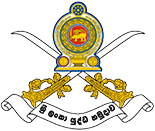 DEFENCE SECRETARY Gotabhaya Rajapaksa says despite annihilation of the LTTE’s conventional military capacity, the Navy will have to be further strengthened to meet any eventuality. The Navy alongside the intelligence services, he says should be the first line of defence to thwart a fresh LTTE threat.
DEFENCE SECRETARY Gotabhaya Rajapaksa says despite annihilation of the LTTE’s conventional military capacity, the Navy will have to be further strengthened to meet any eventuality. The Navy alongside the intelligence services, he says should be the first line of defence to thwart a fresh LTTE threat.
In a brief interview with The Island, the war veteran emphasized the pivotal importance of developing a cohesive approach as part of an overall strategy not only to tackle the LTTE, but enhance regional security as well.
Sri Lanka’s first priority in a post-LTTE era would be to thwart any attempt to revive the sea smuggling network to bring in arms, ammunition and equipment and trained cadres, he said. A desperate LTTE rump would now do anything to restore at least one sea supply route, he said adding that the country could not ignore that about 12,000 LTTE cadres were either captured or surrendered during the last phase of the war. Responding to a query by The Island, he said:
"The Somali pirates have caused an unprecedented international crisis by targeting ships over a period of time. A few years ago, no one would have expected a rag-tag force to challenge international sea routes, but today the international community is struggling to contain the threat."
When compared with the LTTE, who had a fleet of ships, attack craft mounted with weapons and explosives-packed suicide boats at their disposal, the Somali pirates’ firepower was nothing, he said.
According to agency reports, the UN Security Council has unanimously adopted a resolution proposed by Russia to set up a special body to try Somalian ship hijackers.
According to the International Maritime Bureau Piracy Reporting Center, Somali pirates attacked 217 vessels in 2009 and hijacked 47 of them.
In 2008, pirates staged 111 attacks off the Somali coast, seizing 42 ships.
About 20 countries, including leading NATO member states, India, China and several Arab states, have sent warships to the Gulf of Aden.
Sri Lanka too has been approached by concerned parties to see whether at least one war ship could be dispatched to the region.
Had the LTTE been allowed a free hand opportunity to expand its sphere of influence, it could have developed into a major threat to international shipping, he said. Referring to the sinking of two Chinese trawlers off Mullaitivu in 2003 and another foreign vessel off Pulmoddai, Defence Secretary Rajapaksa said the LTTE launched Eelam war IV believing it could block the strategic Trincomalee harbour.
Commenting on international efforts to counter illicit migration, Defence Secretary Rajapaksa said that Sri Lanka was cooperating with Australia in this regard. "We are closely working with the Australia government and are largely successful in our efforts," he said. The Police and the Navy had thwarted many attempts over the past two years he said adding that an increased naval presence supported by ground-based radar was required to tackle illicit sea movements.
Another issue for concern is the smuggling of narcotics, he said. With the conclusion of the war, more fishermen were engaged in their trade, thereby creating an environment for heroin smugglers to take advantage, Defence Secretary Rajapaksa said. He emphasized that restrictions imposed on the fishing community during the war could not be totally removed, though being relaxed. (Courtesy: The Island)

